Turkish FM’s remarks on Greece Muslims irks Athens ahead of talks
Greece has reacted furiously to remarks by Turkey’s Foreign Minister Mevlut Cavusoglu describing the Muslim minority community in northern Greece as Turkish who were denied full civic rights.
"We want Greece to give the same rights as we provide to the Greek Orthodox Church and Greek minority to the Turks in Western Thrace," Cavusoglu stated on Sunday during a private visit to the northern Greek region of Thrace, according to video footage released by Ankara’s foreign ministry.
The remarks by Turkey’s top diplomat, however, came just ahead of an official meeting on Monday with Greek Prime Minister Kyriakos Mitsotakis and Foreign Minister Nikos Dendias in Athens, prompting a swift reaction by the Greek foreign ministry.
“Turkey's continuous efforts to distort reality, as well as its claims alleging lack of protection of these citizens' rights or discrimination, are unfounded and are rejected in their entirety," Greek Foreign Ministry spokesman Alexandros Papaioannou said in a news release.
“The Muslim minority in Thrace has about 120,000 Greek inhabitants," he said. "Turkey's constant attempts to distort this reality, as well as the allegations of non-protection of the rights of these citizens, or of discrimination, are unfounded and are rejected in their entirety."
Reporting on Cavusoglu’s Sunday visit to the city of Komotini in Thrace, Turkey’s official Anadolu News Agency said his delegation met with Ibrahim Serif, the chairman of the Western Thrace Turkish Minority Advisory Board and the elected mufti of Komotini, as well as Ahmet Mete, the elected mufti of Xanthi.
"The work of the muftis contributes greatly to the preservation and strengthening of the unity and solidarity of the Turkish minority," Cavusoglu said in a Twitter post after the visit.
This is while Cavusoglu had previously said the aim of his visit was to prepare for a bilateral meeting between the Greek prime minister and Turkish President Recep Tayyip Erdogan during a NATO summit in Brussels on June 14.
Turkey has often insisted that Greece does not protect the rights of its Muslim minority, many of whom are of Turkish descent and Turkish-speaking.
The foreign ministers of the two neighboring nations also clashed openly during a press conference in Ankara last month following talks aimed at easing months of tension between the two historic rivals.
The status of Greece's Muslim minority remains one of several points of contention between the members of the US-led NATO military alliance.
A century after the two countries fought a war that displaced more than a million people on both sides of the border, Turkey says the roughly 120,000-strong Muslim community in the region is a Turkish minority, a position rejected by Athens, which describes them as Greek Muslims.
Both NATO allies also remain at odds over issues ranging from competing maritime territorial claims in the Eastern Mediterranean region to the status of Cyprus and the treatment of refugee boats.
They came close to armed conflict last year when naval vessels from each side maneuvered close to each other in disputed waters during a standoff over energy exploration.
VIDEO | 85% of Yemeni displaced people face daily hunger crisis
US House passes bill targeting charities and pro-Palestine groups
VIDEO | Supporting Gaza genocide
Hezbollah attacks Israeli forces after Lebanese homes blown up
World leaders, states hail ICC arrest warrants for Netanyahu, Gallant
MP: US accountable for possible Israeli 'foolishness' to attack Iraq
VIDEO | Israeli policies strangle Palestinian agriculture, economy
Iran's president offers condolences to Pakistan over terrorist attack


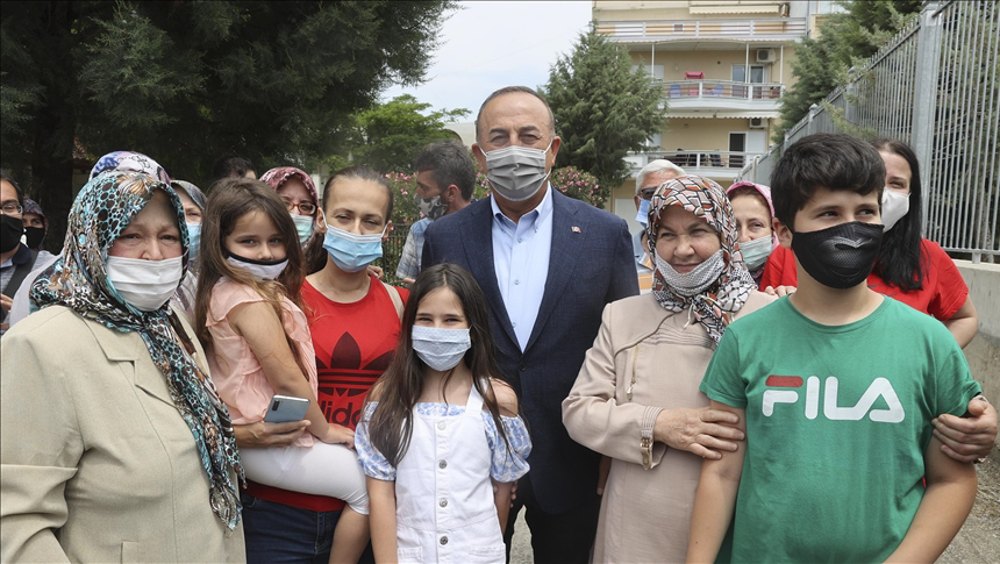


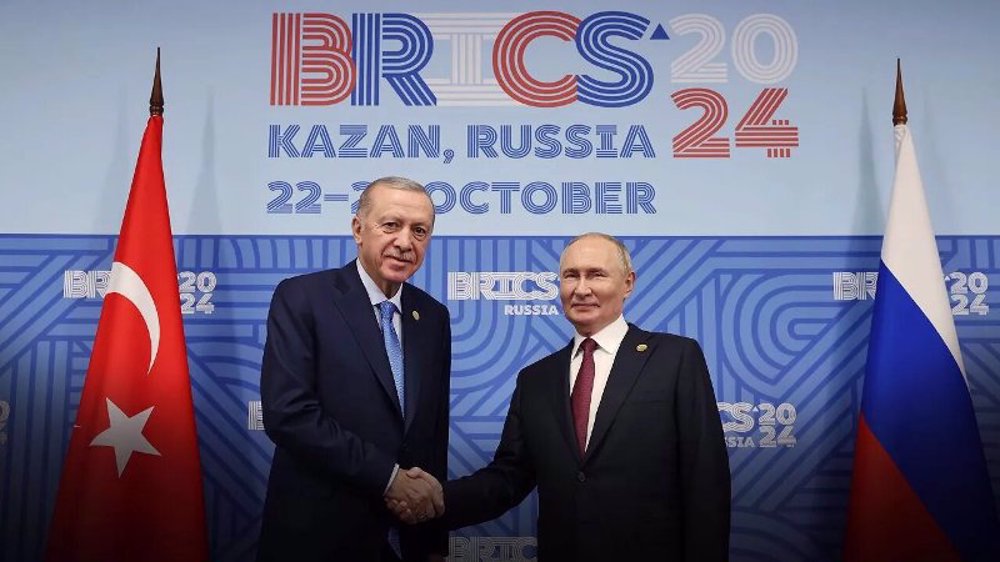
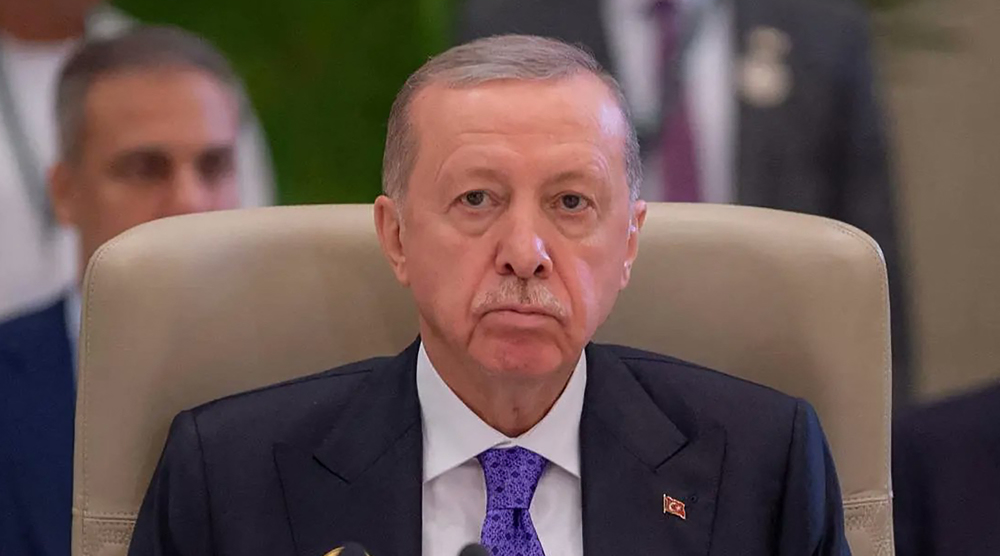



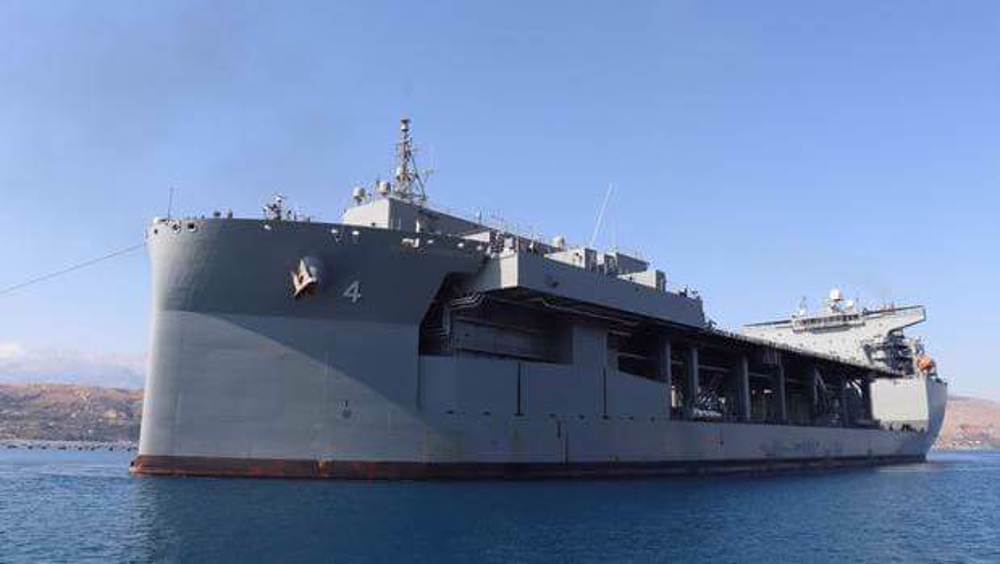
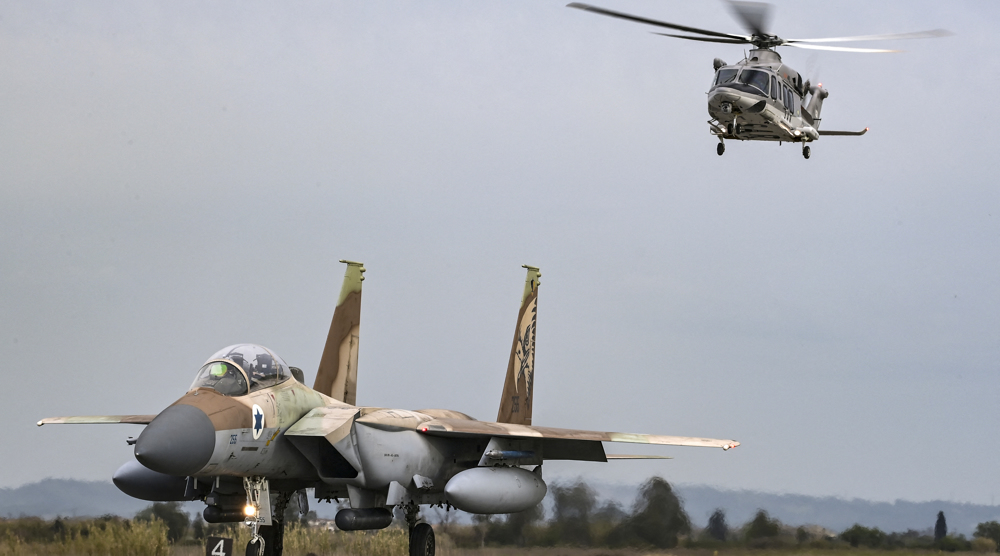
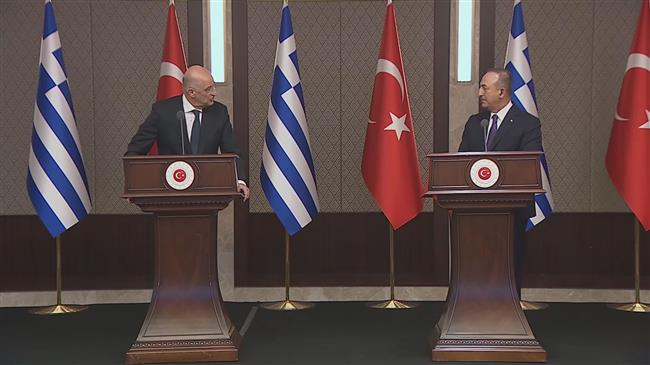

 This makes it easy to access the Press TV website
This makes it easy to access the Press TV website